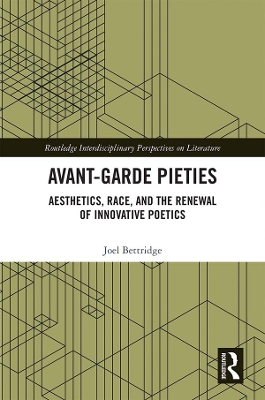Routledge Interdisciplinary Perspectives on Literature
1 total work
Avant-Garde Pieties tells a new story about innovative poetry; it argues that the avant-garde-now more than a century old-persists in its ability to nurture interesting, provocative, meaningful, and moving poems, despite its profound cultural failings and its self-devouring theoretical compulsions. It can do so because a humanistic strain of its radical poetics compels adherents to argue over the meaning of their shared political and aesthetic beliefs. In ways that can be productively thought of as religious in structure, this process fosters a perpetual state of crisis and renewal, always returning innovative poetry to its founding modernist commitments as a way to debate what the avant-garde is-what it should and does look like, and what it should and does value. Consequently, Avant-Garde Pieties makes way for a radical poetics defined not by formal gestures, but by its debate with itself about itself. It is a debate that honors the tradition's intellectual founding as well as its cultural present, which includes aesthetic multiformity, racialized and gendered modes of authorship, experiences of the sacred, political activism, and generosity in critical disagreement.
